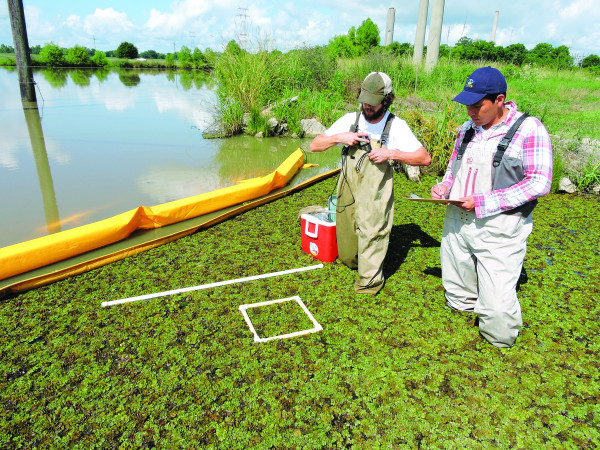Boat registration rates to increase


2019 fee hike to fund plant, species control
The Louisiana Department of Wildlife and Fisheries (LDWF) Licensing Section is reminding all Louisiana boat owners that registration rates are increasing in 2019.
Motorboat registration is going up by $9 for each boating length category. Registration is valid for a three-year period, according to a press release.
LDWF Public Information Officer Rene LeBreton said the additional fees are a result of Act 698 of the 2018 Regular Legislative Session. The extra funds are being dedicated to LDWF’s Aquatic Plant Control Fund and will be used to fight aquatic plants and invasive aquatic species across the state.
“Giant Salvinia and other invasive plants can clog up our waterways and prevent passage for boats,” LeBreton said.
The last time the fees were increased was in 2000, he said. The new fees will take effect Jan.1. For a full list of fees, which increase by boat length, visit www.wlf.la.gov/boating.
LDWF Biologist Manager Sean Kinney said aquatic vegetation problems in Jeff Davis could mostly be found in the southern parts of the parish.
“We generally only see problems in the Lake Arthur area, as well as on the Mermentau River,” Kinney said. “Here we commonly see issues with salvinia and also sometimes water hyacinth.”
Salvinia molesta, commonly known as giant salvinia, is a monster weed capable of muscling into waters and overtaking them. If first appeared at the Texas-Louisiana border in 1998, according to LDWF.
The plant has caused major problems for Brazil’s rice industry, and it’s a threat to rice farming in Louisiana, too, as well as fishing and boating.
Louisiana has everything that moving bayous and shallow wetlands and a long growing season. Giant salvinia’s ability to spread rapidly, doubling its biomass every three days, makes it able to crowd out other plants. Its dense growth threatens aquatic life since it blocks sunlight and sucks the oxygen out of water.
Giant salvinia lacks natural enemies and is especially tough to kill, plus the chemicals that can control it are expensive, according to LDWF.
The added funding is expected to help LDWF better control invasive plants such as giant salvinia, helping to stop the spread of the weeds into canals and waterways.
“Every year we pretty much run out of weed control funding depending on how warm of a winter we have,” Kinney said. “This is going to help us cover more area and treat more aggressively.”
The longer warm seasons experienced in the south make it harder to control the spread of the weeds, he said.
“A freeze can help knock out many of the plants better and for less money than anything we can spray,” Kinney said. “A freeze means less plants at the end of the summer, which is our busiest time.”
Another factor is that boaters sometimes unknowingly allow for the plant to spread to new bodies of water. Since the plants can live out of water for several days, boats and boat trailers easily pick up the invasive plants.
LDWF encourages boaters to do their part to halt the spread of these types of plants by cleaning their boats and trailers at a launch and remembering to remove any vegetation that might be clinging to the hull or propeller.
